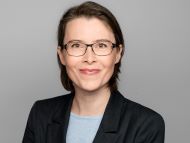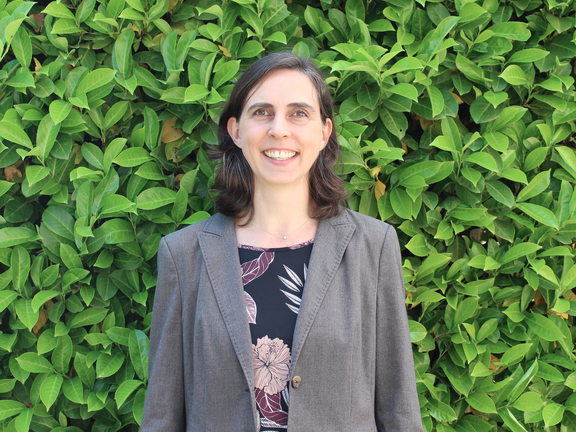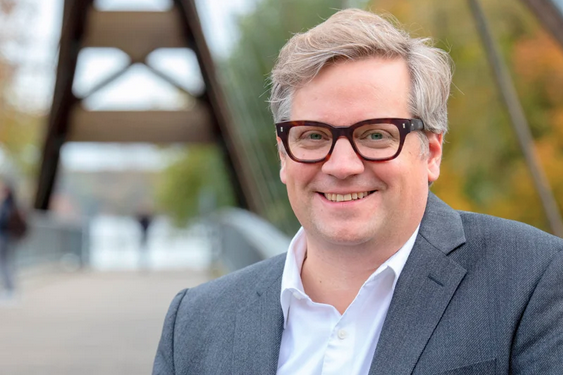Welcomes
Jan-Hendrik Passoth
Esteemed colleagues, honored guests, and participants,
In today's ever-changing global context, marked by remarkable shifts in geopolitics, evolving power dynamics, and a series of complex issues, the study of borders is of increasing relevance and importance. As we convene for the "Contesting 21st Century B/Orders" conference, we find ourselves at a significant juncture. This moment represents an important phase where the exploration of borders and migration holds profound importance, shaping our understanding of global events and the intricate interplay between them.
In recent years we have witnessed the collision of multiple crises—be they humanitarian, environmental, or political—in a global landscape that is increasingly interconnected yet rife with differences, distinctions, and conflicts. Borders, drawn as lines on maps, have transformed into dynamic sites where the world's most pressing issues converge. The movement of people, the flow of resources, and the clash of positions occur against the backdrop of territorial, ideological, and metaphorical boundaries, making the study of borders indispensable for comprehending the forces that shape our contemporary world.
Viadrina University, situated at the crossroads of Germany and Poland, exemplifies the profound importance of border research. Just as this university straddles a physical border, it also occupies a unique space at the intersection of disciplines, approaches, and knowledge cultures. This positioning mirrors the very essence of border research itself, which transcends traditional academic boundaries to illuminate the multifaceted dimensions of our global reality.
Viadrina's commitment to interdisciplinarity and cross-cultural understanding aligns seamlessly with the core of border research. The challenges of the 21st century demand insights that transcend narrow academic confines. Borders, whether geopolitical or intellectual, are spaces of convergence where diverse perspectives come together. Viadrina's emphasis on fostering collaboration across disciplines enriches not only its academic pursuits but also amplifies its role as a catalyst for addressing the pressing issues of our time.
I extend my warm welcome to each participant, each scholar, and each advocate of border research. Your commitment to exploring the intricate landscapes of borders and migration enriches our collective understanding and paves the way for a more informed and interconnected world. In the spirit of scholarly exploration, let me invite you to fostering fruitful exchanges, engaging in thought-provoking debates, and exploring the potential for lasting collaborations that extend beyond the conference's boundaries.
Prof. Dr. Jan-Hendrik Passoth is Vice President of the European University Viadrina in Frankfurt/Oder and Professor of Sociology of Technology and Head of the Science & Technology Studies group at the European New School of Digital Studies (ENS) at the European University Viadrina, Frankfurt/Oder. Photo: European-Univ. Viadrina.
Kira Kosnick

Dear conference participants,
as Director of the Viadrina Center B/ORDERS IN MOTION that is hosting our upcoming international conference, I am delighted to welcome you to the European University Viadrina. With this conference, we celebrate the ten-year anniversary of B/ORDERS IN MOTION, the interdisciplinary research center of the university that critically examines the relationship between borders and orders. Combining border studies with research on migration, our understanding of borders incorporates not only geopolitical borders between states, but also, and as interrelated, the symbolic and discursive boundaries that operate as socio-cultural lines of demarcation between social groups. The center brings together not only colleagues from different disciplines and faculties of the university, but cooperates with scientists and organizations both nationally and world-wide. We are thus particularly happy to organize our upcoming conference in collaboration with the international research network “Borders in Globalization“– 21st Century borders (BIG) and the "Transfrontier Euro-Institut Network" (TEIN).
The conference could not be more timely, taking place in a historical moment in which the contestation of state borders has once again moved to the center of geopolitical tensions in Europe, with Russia’s war of aggression against Ukraine. What is more, the UNHCR has never registered more people displaced, seeking refuge or asylum elsewhere as a result of violence, conflict and persecution world-wide. Human-made climate change is increasingly contributing to displacement, either indirectly by fuelling conflict or directly by making regions of our planet increasingly unable to sustain human life. While most of those forced and able to cross international borders are hosted by low- and middle-income countries, we also witness a tightening of border regimes in high-income countries against refugees and migrants deemed unsuitable or even dangerous by governments on economic or socio-cultural grounds. The EU’s radical reforms of its migration and asylum laws that were agreed in June are a case in point, calling into question the very principles of the Geneva Convention that sought to internationally protect the rights of refugees world-wide in the wake of the Second World War.
The location of this conference is therefore also meaningful, taking place – for the most part – in a country that carries historical responsibility for this war and most of its related atrocities. As these were fuelled by antisemitism and forms of racism that not only sought to disenfranchise and displace but to murder entire populations, it is important to also engage with the ideological formations that deny groups of human beings equal worth and rights to state protection. The European University Viadrina is also directly located on the German-Polish border, thus forging connections and living the reality of an idea of Europe that seeks to overcome historical divisions and conflicts. We thus particularly welcome the participation of our international colleagues at this conference, as the challenges of 21st century borders can only be met conjointly.
Prof. Dr. Kira Kosnick is Director of the Viadrina Center B/ORDERS IN MOTION at European University Viadrina in Frankfurt/Oder.
She is member of the Faculty of Social and Cultural Sciences and holds the Professorial Chair of Comparative Cultural and Social Anthropology at European University Viadrina in Frankfurt/Oder.
Photo: European-Univ. Viadrina.
Anne Thevenet

Dear Participants,
Dear Organizers,
It’s a great pleasure for me to be here with you and to be part of the opening session of this conference „Contesting 21st Century B/Orders”. I’m here as Deputy Director of the Euro-Institut, a cross-border institution aiming at facilitating cross border cooperation in the Upper Rhine region (between France, Germany and Switzerland) and also as coordinator of TEIN (Transfrontier Euro-Institut Network). For me, this conference is unique in many ways. First of all this event marks the tenth anniversary of the Viadrina Center B/ORDERS IN MOTION, an interdisciplinary research center on borders that produced incredible work highlighting that borders must always be thought of in terms of dynamic interrelationships. A warm applause! Also for the huge work done to organise this great conference. Second, this event is also the TEIN annual conference 2023! The Transfrontier Euro-Institut Network formed 2010, gathers now 17 members from more than 10 borders in Europe (Viadrina Center B/ORDERS IN MOTION is one of them!) and 2 associated members. The aim of our Network is to build capacities in cross-border contexts through training, counselling, support and research. To that end, TEIN’s vision is one where exchange between practitioners and researcher on know-how, training, research and best practices across borders is facilitated and promoted. This leads me to my third point. This conference is also unique because since 2021, TEIN is part of the worldwide BIG-21st Century Borders project led by Prof. Emmanuel Brunet Jailly from the University of Victoria -Canada. For us it is a real honor to be part of this amazing project –Emmanuel will tell you a bit more about it in a minute – and to contribute, through this conference to the research pillar that focuses on governance questions related to borders and nationhood, Indigenous resurgence, self-determination, new-nationalisms, culture and history.
Last but not least, this conference is unique because of the impressive list of speakers and also because of you, dear participants. I’m looking forward to exiting presentations, fruitful discussions and wonderful networking possibilities!
Anne Thevenet is Deputy Director of the Euro-Institut and coordinator of TEIN (Transfrontier Euro-Institut Network).
Photo: Euro-Institut.



